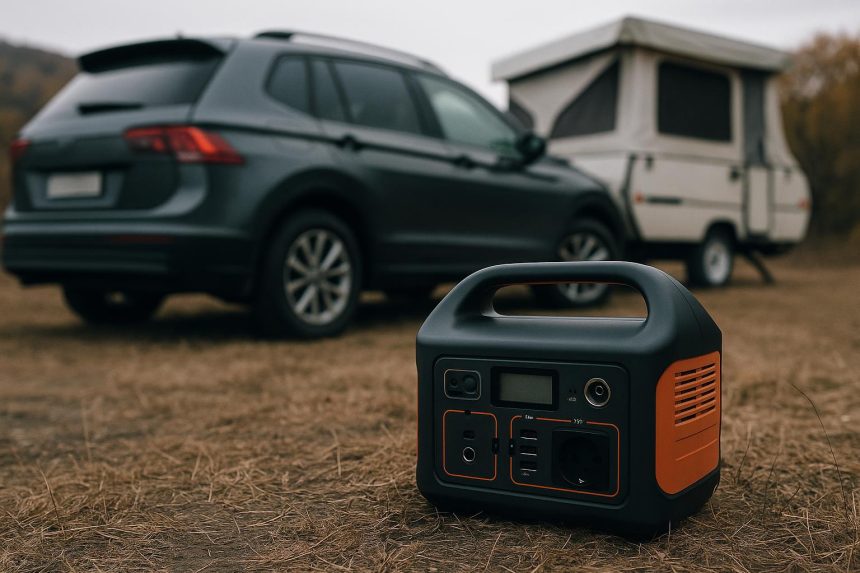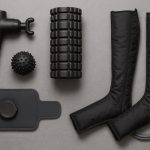You’ve packed your bags, prepped the snacks, and fuelled up for a weekend escape. Everything’s running smoothly — until your fridge cuts out, your lights fade, and your devices die halfway through the trip. You’re left wondering how a simple weekend getaway turned into a power-management nightmare.
The truth? Most travellers don’t understand how their vehicle’s power system really works. It’s not about having the biggest battery or the flashiest setup — it’s about how efficiently that power is delivered and replenished. And that’s exactly where dc to dc chargers from iTechworld come into play.
The Misconception About Vehicle Power
A common mistake weekend adventurers make is assuming their car’s alternator can fully charge an auxiliary battery. In theory, it sounds fine — you’re driving, so the engine’s running, and power must be flowing. But modern vehicles are designed to protect the main battery first, not your secondary one. That means your fridge, lights, and devices are often drawing from a battery that’s never getting fully recharged.
Even worse, alternators vary their voltage output to improve fuel efficiency. This might save a bit of petrol, but it also means your secondary battery isn’t getting the constant current it needs. The result? Shorter battery life, inefficient charging, and a system that can’t keep up with your gear.
Why Smart Charging Makes All the Difference
A DC-DC charger solves this problem by regulating the flow of power between your main and auxiliary batteries. It ensures your secondary battery gets a full, proper charge every time — no matter how short your drive is or what kind of vehicle you’re running.
The best part? These chargers also work seamlessly with solar setups. Whether you’re driving or parked at a campsite, the charger automatically adjusts to prioritise the best energy source available. You don’t need to tinker with switches or worry about overcharging — it all happens behind the scenes.
Signs Your Current Setup Isn’t Working
If you’ve ever cut a trip short because of power issues, chances are your current system is letting you down. Some red flags to look out for include:
- Your fridge struggles to stay cool after a few hours parked.
- Your lights dim noticeably overnight.
- You need to start the car daily just to recharge.
- Your battery doesn’t seem to last more than a year or two.
These issues usually point to inconsistent or insufficient charging — not bad batteries. A properly configured setup ensures everything runs smoothly, no matter how long you’re off-grid.
Building a Reliable Power Setup
You don’t need a complex system to enjoy reliable off-grid power. Here’s what most weekend travellers find works best:
- A dual battery system: One for starting the engine and one dedicated to accessories like fridges and lights.
- A DC-DC charger: Ensures full, balanced charging every time you drive or use solar power.
- Solar input (optional but valuable): Keeps batteries topped up while parked.
- A battery monitor: Helps track voltage and catch issues early.
Once installed, the system runs quietly and automatically — freeing you to focus on enjoying your trip instead of watching your power levels.
Simple Power-Saving Tips for Longer Stays
Even with a great setup, smart habits help extend your battery life:
- Use LED lighting instead of halogens.
- Keep your fridge shaded and closed as much as possible.
- Charge devices during the day when power input is highest.
- Avoid running high-draw items like kettles or heaters on battery alone.
- Check cable connections regularly for corrosion or looseness.
These small habits can make the difference between cutting a trip short or staying comfortably powered for days.
Enjoy the Journey Without the Power Panic
Power problems can turn even the most relaxing weekend into a stressful scramble. But with a properly managed system, those worries disappear. You’ll have consistent energy for your fridge, lights, and devices — no idling, no guessing, and no flat batteries.
By investing in the right gear and understanding how your setup works, you can finally enjoy your time on the road without constant power anxiety. The goal isn’t to have the biggest battery or the most complicated system — it’s to have one that just works, so you can keep your focus where it belongs: on the adventure ahead.
Lynn Martelli is an editor at Readability. She received her MFA in Creative Writing from Antioch University and has worked as an editor for over 10 years. Lynn has edited a wide variety of books, including fiction, non-fiction, memoirs, and more. In her free time, Lynn enjoys reading, writing, and spending time with her family and friends.















